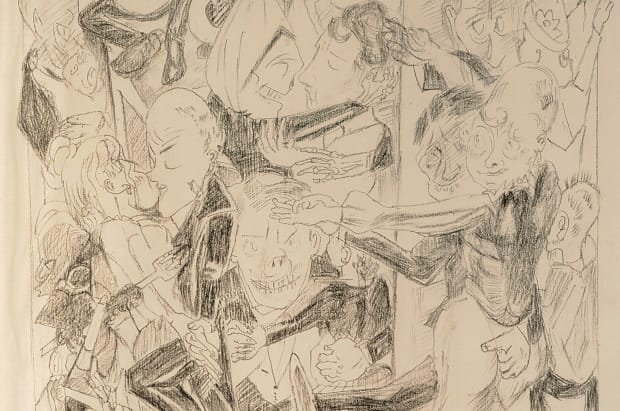

Born in Leipzig in 1884 to a middle-class family, Max Beckmann began painting as a teenager and studied at the Kunstschule (Art School) in Weimar, where he developed a traditional, academic style. In 1903, Beckmann left Weimar for Paris to refine his craft. The experience was not to his liking. He abandoned this following his experience of the First World War, in which he served as an orderly, returning to art with a sense of African figurative distortion. His spiritually charged work earned him several honours during the Weimar Republic, including the Honorary Empire Prize for German Art, and by 1925 he was installed in a teaching position at the Städelschule in Frankfurt. However, Hitler’s rise to power brought the suppression of modern art in Germany, forcing Beckmann and his family into exile in Amsterdam. They moved to the United States after the war, eventually settling in New York after a series of successful retrospectives. In 1950, en route to see one of his own paintings at the Metropolitan Museum of Art, Beckmann suffered a heart attack and died.

22 Old Bond Street,
London W1S 4PY,
United Kingdom
Cookies allow us to provide you with useful features and to measure performance in order to improve your experience. By clicking 'Accept all', you agree to the use of all cookies. By clicking 'Manage Cookies', you only agree to the use of selected cookie categories.